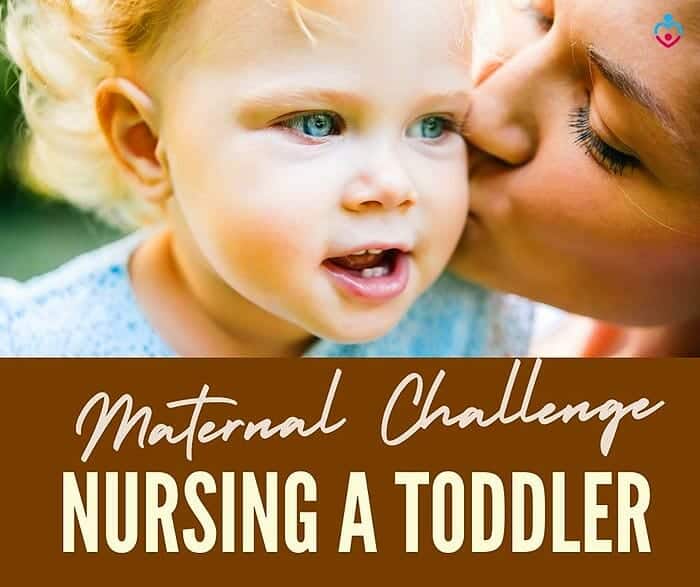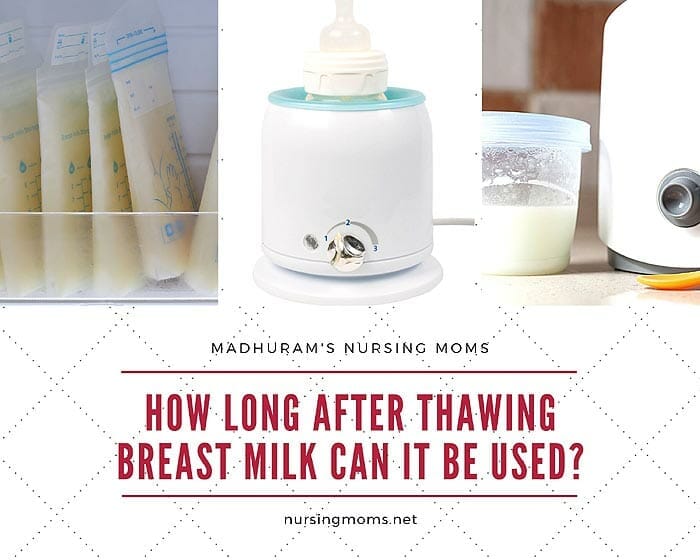
Statistics show that most mothers stop breastfeeding their babies when they turn six months old. But that doesn't mean that you have to do the same.
If you can nurse your baby into the toddler phase, you should definitely consider doing that, as breastmilk can bring many benefits to your child's overall health.
Here is everything you need to know about nursing your toddler.
Jump to:
How will nursing sessions change as your baby gets older?
As your baby gets older, you will notice that they eat a lot faster. This is normal, and you shouldn't worry if they empty your breasts in a few minutes. They will have no problem latching, and they will eat a lot better than younger babies. But the fact that your baby will eat faster doesn't mean they are ready to wean.
Don't be surprised if your toddler will nurse for a couple of minutes before they run off to play for a while. This is a great time to eat and get their nutrition and connect with their mother.
However, the naptime nursing sessions, as well as those during the night and as soon as your baby wakes up, will take a bit longer. During these sessions, your baby will be more tired and less distracted.
Suggested Reading:
![]()
How often will you breastfeed them?
The frequency of meals will also change for your toddler. If you could count on a nursing schedule during the first six months, as your baby becomes a toddler, breastfeeding will become a bit more hectic. Plus, each child is different, so you will not have a pattern to follow.
- There are toddlers that nurse often, but they eat fewer quantities, and babies that will only nurse two or three times a day, but they will empty the mother's breasts. As a general rule, you should notice that nursing frequency decreases as your baby gets older.
- Toddlers tend to nurse for comfort, not only nutrition needs. Breastfeeding can calm your toddler down or offer them the comfort they need when they are sick. This is a great way to reconnect with their mother and find the balance of their relationship at the same time.
- Considering these aspects, not every time your toddler asks for nursing, it means that they are hungry. This makes the breastfeeding schedule even harder to predict.
- Also, you will notice that some days your toddler will want to breastfeed more while other days, they will be satisfied with only two or three meals. If they are teething, they will naturally need more comfort, and they will want to nurse more.
Suggested Reading:
![]()
Will you struggle with the weaning phase if you breastfeed past one year?
You might wonder how you will go through the weaning phase if your baby nurses into the toddler years.
- Despite the conception that you need to start introducing solid foods into your baby's diet when they are six months, the truth is that you can make this transition before or way after this age. Some mothers start the weaning phase at 15 months, 18 months, or even later.
- If you choose to breastfeed your baby for more than six months, that doesn't mean it will be more difficult to wean them. However, you need to consider the age when your child is ready for solid food as well.
- Each child is different, and some of them might want to enjoy the nursing phase exclusively for a few more months before they get into the fruits and veggies.
- The weaning phase will go the same regardless of the age of your child. However, you can expect your toddler to pick up faster on solid foods compared to a six-month-old baby.
- Toddlers are more curious and open to trying new things, and food is no exception. When it comes to initiating weaning, it is best to start this process when your baby is ready for it.
Suggested Reading:
![]()
You can nurse your baby as long as both of you are comfortable with it. Breastfeeding is a solid emotional connection between mother and child, and stopping it should be done only when your baby is ready to move on to other stages of development.
![]()




